Look at me writing an essay on March 15 and not even mentioning… oops.
North and South vs Pride and Prejudice
As the world seems to come to a standstill caused by the Corona virus, I have taken the opportunity to pick up one of my favourite books of all time (my favourite, excepting Tolkien) and escape into the Victorian setting of Elizabeth Gaskell’s 1855 classic North and South.
North and South is to me what Pride and Prejudice is to many other women. It’s my favourite romance of all time and I read it (or watch the film adaptation) anytime I’m in need of some distraction from real life problems. I love it so much that I’ve even travelled to Edinburgh, where the adaptation was filmed, to visit the sets. (One of which, Calton Hill, is my profile picture on Fanfiktion.de.)
My comparison is not arbitrary. North and South has often been compared to Pride and Prejudice and, on the surface, they have many similarities. In North and South, we have a spirited, proud heroine who clashes repeatedly with a seemingly aloof man who secretly harbours feelings for her. There’s an iconic, passionate proposal in the middle of the book which comes just as out of the blue to Margaret as it does to Elizabeth, and is just as vehemently refused. The hero then goes on to help the heroine and her family out of a difficult situation, only for her to fall in love with him after all.
The plot-wise similarities and their status as beloved period dramas with even more well-known adaptations has led to Pride and Prejudice and North and South being considered as birds of a feather. Likewise, the BBC’s 2004 adaptation North & South (starring Daniela Denby-Ashe and Richard Armitage – if you haven’t watched it yet, do so immediately!) has often been compared to the famous 1995 BBC miniseries Pride and Prejudice (with Jennifer Ehle as Lizzie Bennet and Colin Firth as Mr Darcy – I don’t think I have to recommend that one).
Two period dramas, two similar plots… Even the name North and South evokes classic Austen titles like Sense and Sensibility. (In fact, it was Charles Dickens who suggested the title to Elizabeth Gaskell and I’m certain he knew what he was doing.)
And yet, I have to confess that Pride and Prejudice has only ever received very lukewarm responses from me. In fact, I am rather indifferent to it. It might be just me, since I also fail to see the romantic potential of Shakespeare’s Romeo and Juliet, which is widely accepted as the archetypical romance. I have to insist, therefore, that this is not an evaluation based on the literary worth of these classics, but rather my own personal taste.
Nevertheless, if these two novels are so similar, the question remains: Why do I prefer North and South?
Part 1: Genre
First of all, the two novels were written at different times. While Austen’s novels are set during the Regency period (now synonymous with historical romance in general), Gaskell’s novel takes place roughly 40 years later during the Victorian era, at a time when the industrial revolution is in full swing.
The plot of Pride and Prejudice unfolds in the small space of a country community and follows the lives of several characters from the English gentry (the untitled, but land-owning upper class). Margaret Hale, the heroine of North and South, also regards herself as part of the gentry, since her mother hailed from this class. However, said mother married an impoverished clergyman and it becomes rapidly clear that, while the Hales might still feel they belong to a higher class, they are considered to be a regular middle-class family by virtually everyone else. From the point on when Margaret’s father quits his job and relocates the entire family to Milton-Northern (think: Manchester), all pretensions of an idyllic, carefree life are over for good. It is as if Austen had taken one of her heroines and hurled her into the dirty slums of a Northern English factory town.
This is the biggest difference between the two novels. In Austen, the worst that will happen to the hapless heroine is the loss of her fortune, resulting in a life in reduced circumstances. Just think of the Dashwood sisters’ horror at losing their ancestral family home and having to life in a rural cottage with only a handful of servants!
The stakes in North and South are much higher. In Milton, Margaret encounters devastating poverty. Her best friend, a factory girl called Bessy Higgins, dies of a work-related illness before she reaches her 20th birthday. Not much later, Margaret loses her mother. By the end of the book, six people have died. The constant threat of death and poverty creates a bleak atmosphere that is realistic for an era when virtually no social welfare services existed and people where left to live or die on their own. Having lived in Manchester herself, Gaskell was all too familiar with the struggles of the working people. Like Austen, she wrote primarily about her own immediate surroundings, only hers were a lot more upsetting.
I do not wish to devalue Pride and Prejudice (or any other Austen novel) by claiming that the conflicts in it are not as serious as in North and South. Both books have very different aims and focus on different matters. Pride and Prejudice is a novel of manners, which gives a detailed insight into a complex society. Nobody beats Jane Austen at observing the little quirks and missteps of human behaviour. With her characteristic dry wit, she gives us a realistic and entertaining portrait of the Regency gentry, their pretensions, aspirations and ultimate humanity. Jane Austen never attempts to give a full picture of English society. The lives and troubles of the English working class are not her focus. Instead, she takes a small social circle and depicts it in detail, just like a miniature portraitist.
Gaskell, on the other hand, is more of a landscape painter. She gives us a broad scope of life in the mid-19th century, from the gentry to the middle class and the poor at the bottom of the social scale. Hers is a social novel, centred around a social problem, in this case, class difference or, more specifically, the struggle between factory workers and employers in industrial Northern England. Critics have called it an industrial novel for this reason.
Austen, in comparison, gives us a peaceful setting where the greatest tragedy that occurs is the marriage of Lizzie Bennet’s best friend to an unattractive churchman. To the reader, Charlotte’s marriage to Mr Collins might be just as big of a shock as the death of Bessy Higgins in North and South. It alerts Lizzie – and the reader – to the realities of life as an unmarried woman in a society where a woman’s worth is defined by her success in making an advantageous match. It severely disrupts Lizzie’s world, but ultimately helps her to become a more rational, mature character.
Austen’s setting, as I have mentioned, is small. She cannot deal with every social problem as minutely as she portrays the Bennets’ struggles, so she just leaves them out altogether. This leaves a relatively harmonious setting without any great dangers, the perfect background for a flourishing romance like Lizzie’s and Mr Darcy’s.
The world of North and South is different.
It would be absurd to focus on love and marriage in a setting where factory workers threaten to stone a wealthy magistrate to death, where people die horrible, slow deaths and a man breaks down over the starvation of his wife and children, ultimately killing himself when he is unable to bear the situation any longer.
North and South is not a feel-good novel.
Which, in my mind, makes its appeal even stronger.
Gaskell does not flinch away from giving us a realistic portrayal of how hard life was for ordinary people in Victorian times. Through Margaret’s eyes, we see the harsh reality of a struggle that is as far removed from the problems of the gentry as can be. As an intermediary between the two different classes, Margaret comes to see both sides, workers’ and masters’, and is not afraid to take a political stance. To me, this is much more engaging than reading about the dealings of the gentry whose relatively carefree world I can never quite buy into, knowing that it was built on the suffering of less fortunate people. It might be due to the fact that I read North and South before encountering Pride and Prejudice, but I can never quite lose myself in the latter’s innocent world.
I fully understand that, in our own reality of social struggles and deadly diseases, it’s a relief to withdraw into a happier time, when securing a good marriage was the greatest challenge in a woman’s life. It’s simple escapism, which I will never condemn, not when my own love for Tolkien’s works is fuelled by it.
But to me, the allure of North and South is so much stronger because its world isn’t happy. It’s not idyllic. It’s every bit as bad as ours. Whatever struggles we are facing nowadays, it’s safe to say that people in the Victorian era had it far worse. To me, that is a welcome reminder amidst panic and apocalyptic scenarios. Knowing that people have overcome worse difficulties than Covid-19 helps me keep a clear head.
There is also the sentimental part of me, which wants to see the drama in period drama. After all, if people can find love and happiness in times as dark as the industrial revolution, why shouldn’t we?
I grew up on Tolkien’s books and their main message has influenced me deeply: The world is a fundamentally dark and perilous place, but there is goodness in it “and though in all lands love is now mingled with grief, it grows perhaps the greater”. The same feeling resonates through North and South.
Or, with a little less pathos: I love drama and this novel has plenty of it.
Part 2: The Romance
As I have mentioned before, North and South is not a feel-good novel.
And yet, there is romance.
Although the plot of North and South is much more dramatic than Austen’s, the development of the heroine is not neglected. In fact, Gaskell’s protagonist is one of the most convincing I know. If I think of the kind of classical heroine I’d want to be, it is Margaret Hale who comes to my mind.
She is arrogant, confident and has no qualms at all about turning down men if she doesn’t love them. Yet her empathy and acute sense of injustice drive her to take a stand for the rights of working people, even in defiance of her own class’s interests. She knows that she is right and is not afraid to stand up to powerful men like Mr Thornton and give them a piece of her mind.
Mr Thornton himself is very different from Mr Darcy.
Darcy’s main difficulties seem to come from his shyness. He’s socially awkward, has a penchant for saying the wrong things and yet gives the appearance of being extremely proud and self-assured. I can relate to him, but I wouldn’t want to date him.
Contrary to the typical regency hero, who doesn’t need to work and just lives to fulfil his social function, Mr Thornton has a clear agency. He has risen from poverty to become a wealthy manufacturer and is looking out for his own profit or, rather, survival in a world driven by market forces. His economic-liberal views clash with Margaret’s social activism. But while she quickly comes to dislike him, he treats her with the utmost respect and enjoys verbally sparring with her even though he disagrees with everything she says. He is even able to overlook her arrogance and contempt of him.
This is where class differences come into play. To Margaret, Mr Thornton is not a gentleman because he does not hail from the same background as she does. He is a self-made man with no pedigree or estate who still needs to hold down a job to survive. She considers herself to be his social better.
In the eyes of everyone else in Milton, it is Mr Thornton who is superior to Margaret. He is wealthy and powerful, a magistrate of the city and well-connected not only in Milton but amongst all tradesmen in England. Margaret, however, has fallen on hard times and has no connections in Milton. Yet Mr Thornton is very much aware of his own lack of education, which marks him as different from the Hales. He lets Margaret keep her pretensions and always acts like she is at least his equal. It’s a very different picture from Mr Darcy insulting Elizabeth’s family when he proposes to her, expressing his self-contempt for falling in love with his social inferior.
It’s a matter of personal taste which character constellation you prefer. While I do like the ending of Pride and Prejudice, where Mr Darcy resolves the whole Wickham-debacle by paying a man he hates to marry the woman Wickham has disgraced, all in order to help Lizzie, it does not resonate with me as much as the plot of North and South. I suspect it is Lizzie’s passiveness that irks me, her being saved by the male hero who, by virtue of his economic prowess, is able to resolve the conflict and restore everyone’s happiness. North and South is different. It is Margaret who saves Mr Thornton in the middle of the book by protecting him from the rioting strikers who are willing to stone him to death. But she does this because it was her who brought him into danger in the first place, questioning his masculinity and making him face the enraged mob. His misinterpretation of her actions leads to the proposal which is again misinterpreted by Margaret who turns him down for acting like it is his duty to save her reputation even though he professes his love for her. Sigh. If that’s not the epitome of romantic drama, I don’t know what is.
Not long after the strike is ended, Mr Thornton is able to redeem himself to Margaret by saving her from being taken to court when she lies to a police officer to protect her brother. It is this relatively minor act (compared to Mr Darcy’s heroics) which has Margaret realise for the first time that she is not Mr Thornton’s superior, at least not in a moral sense. But she does not fall into his arms after this revelation. It would be a poorer book if she did.
Matters play out very differently. Due to the strike and his refusal to risk his employees’ wages by engaging in speculation, Mr Thornton loses his wealth and his business. Now he has indeed become socially inferior to Margaret who – in the meantime – has inherited a fortune. In an ironic turn of events, she has become the owner of the property on which his factory is built and is now his superior in a very literal sense. By this point, Mr Thornton has revealed himself to care much more about his workers than he previously let on. Yet all his schemes to improve his employees’ living conditions have come to an end as he travels to London to ask Margaret to end his tenancy.
It is very rare for a period drama to see the male hero completely defeated. His social and economic power has been stripped away and nothing remains but his character. For once, the heroine holds all the strings.
In comparison: When Lizzie Bennet accepts Darcy’s second proposal in the end, she does not only marry the man she loves but also a very eligible bachelor with £10,000 a year. It is a love match, but according to the conventions established over the course of the book, the advantage lies very clearly with her. Lizzie has come to appreciate Darcy for the man of character he is and is rewarded with a rich, desirable husband.
Margaret’s decision at the end of North and South is much more difficult. Over the course of the novel, she has been repeatedly courted by the ambitious lawyer Mr Lennox, a friend of the family, who was the first to propose to Margaret, recognising in her a kindred spirit. He bears some similarities to Darcy in that he loves the heroine despite her reduced circumstances. Later, after she returns to London and becomes rich, he rekindles his interest in her and they grow close again. Returning to the safe haven of London after the horrors she has seen in Milton, Margaret has become a stronger, wiser character. Marrying a wealthy man who resembles her in character and social station, the first who proposed to her and recognised her desirability… It seems like the happy ending she has earned.
But Gaskell knows better. There is no coming back from Milton, no return to the happy paradise of Margaret’s youth. The upper class’s obsession with rank and appearances feels shallow to Margaret after all the suffering she has experienced.
We know that she will refuse Henry Lennox and tellingly, he knows it too. It is why Lennox stays so mysteriously absent in the final chapter of the book, not turning up to Margaret’s and Mr Thornton’s appointment to discuss her “business proposal”.
The book has a somewhat open ending, but when Margaret and Mr Thornton finally express their feelings for each other and start building a future together on the final two pages of the book, we know that they will end up married.
The heroine’s choice to marry a man only after he has lost all his power over her seems like a feminist utopia. I can think of no similar ending in any other novel of the period. But it would be going too far to claim that the upper hand in this relationship belongs to Margaret. In fact, I would argue that, in the end, both partners are as equal as it is possible to be for a couple in this period.
Margaret giving her money to Mr Thornton to help him restart his business appears like an odd choice for the woman who once thought of all factory owners (and this one in particular) as heartless tyrants. It shows how they have both developed as characters, him having developed more of a social consciousness and her coming to see the struggle between masters and workers as more than just black and white. In the end, Margaret chooses a financially ruined man with nothing to commend him but his character. Call me a hopeless romantic, but to me, this feels like a much grander gesture than Lizzie marrying Mr Darcy who’s not only a great guy, but also the wealthiest man of her acquaintance. Of course, Mr Darcy cannot help being rich, but in many ways, he is just too good to be true. The relationship between him and Elizabeth will always be unequal, due to his superiority in terms of rank and wealth, and, of course, the institutional oppression of women in marriage.
In North and South, at least the genders are flipped. Margaret is rich, young and beautiful, not quite a female Mr Darcy, but a desirable match nonetheless. Mr Thornton, on the other hand, has no money or social standing, he is not even handsome. Granted, he is still a man and as such in a position of power over his wife. Yet, due to Margaret’s advantage in all other aspects, it feels to me like their relationship is perhaps the only one in all the 19th century novels I have read with a chance for true equality.
Maybe that is why I’m drawn to this story. Perhaps I can’t quite lose myself in the fantasy of an eligible, handsome, honourable man who will fall passionately in love with me like Mr Darcy. Perhaps I would rather be the one doing the choosing than being chosen, for whatever attributes I might possess. Or maybe I’m actually identifying with Mr Thornton, indulging the fantasy of a woman falling in love with me on the basis of my character alone, with nothing else in my favour. (Hey, a girl can dream.) In all probability, it is just the idea that even in the worst circumstances, amidst poverty and death, love can persist. It grows between two equally flawed people who have to walk through hell together before they can finally find happiness in each other.
Contrary to Austen, the ending does not solve all conflicts. The social conflicts around which North and South is centred won’t cease to exist just because two people get married. Margaret and John won’t leave these problems behind, but together, they will find the strength to face them.
And that’s all the escapism I need.

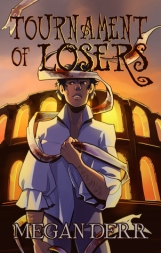



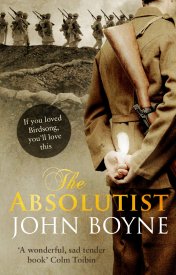

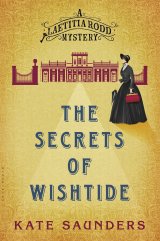





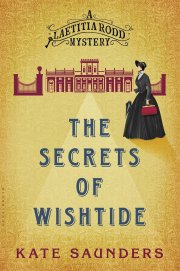
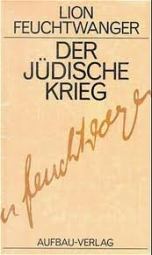 Der jüdische Krieg is the first volume in the Josephus trilogy by German author Lion Feuchtwanger. It was lent to me by a friend whose favourite book it is, and I can definitely see why he loves it. Der jüdische Krieg (its English title is simply Josephus) is about the early years of the Jewish revolutionary, military commander, theologian and historian Flavius Josephus. Well-educated and ambitious, he longs to be a part of Roman society while also striving to free his native country, Judea, from the yoke of Roman oppression, ultimately befriending and changing the destinies of both freedom fighters and emperors alike.
Der jüdische Krieg is the first volume in the Josephus trilogy by German author Lion Feuchtwanger. It was lent to me by a friend whose favourite book it is, and I can definitely see why he loves it. Der jüdische Krieg (its English title is simply Josephus) is about the early years of the Jewish revolutionary, military commander, theologian and historian Flavius Josephus. Well-educated and ambitious, he longs to be a part of Roman society while also striving to free his native country, Judea, from the yoke of Roman oppression, ultimately befriending and changing the destinies of both freedom fighters and emperors alike.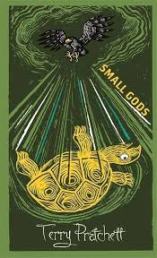
 Another first for me – prior to this year, I had never read anything by Georgette Heyer, the mother of Regency romances (probably for that very reason). Heyer can only be described as the 20th century’s Jane Austen, but her books are juicier and (dare I say it?) more entertaining than Austen’s romances. The Grand Sophy is a about a heroine Austen would never have invented because she defies every social norm and absolutely refuses to fit into polite society. When Sophy descends upon the down-on-their-luck Rivenhall family, she changes their lives forever – much to the chagrin of her morose cousin, Charles Rivenhall.
Another first for me – prior to this year, I had never read anything by Georgette Heyer, the mother of Regency romances (probably for that very reason). Heyer can only be described as the 20th century’s Jane Austen, but her books are juicier and (dare I say it?) more entertaining than Austen’s romances. The Grand Sophy is a about a heroine Austen would never have invented because she defies every social norm and absolutely refuses to fit into polite society. When Sophy descends upon the down-on-their-luck Rivenhall family, she changes their lives forever – much to the chagrin of her morose cousin, Charles Rivenhall.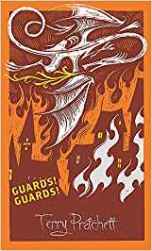 discovery of the year for me, although I’ve known for a while that I’d probably love them if I’d only find the time to read them. What I did not expect was how I would end up spending every minute of my free time reading Guards! Guards! and developing actual withdrawal symptoms after finishing it. Seriously. It’s that good.
discovery of the year for me, although I’ve known for a while that I’d probably love them if I’d only find the time to read them. What I did not expect was how I would end up spending every minute of my free time reading Guards! Guards! and developing actual withdrawal symptoms after finishing it. Seriously. It’s that good. Alright, alright – this was never a fair competition. William Shakespeare plays in a league of his own and I’m fairly sure Sir Terry would not even mind being bested by him in this ranking.
Alright, alright – this was never a fair competition. William Shakespeare plays in a league of his own and I’m fairly sure Sir Terry would not even mind being bested by him in this ranking.